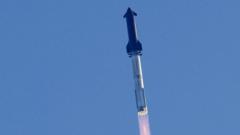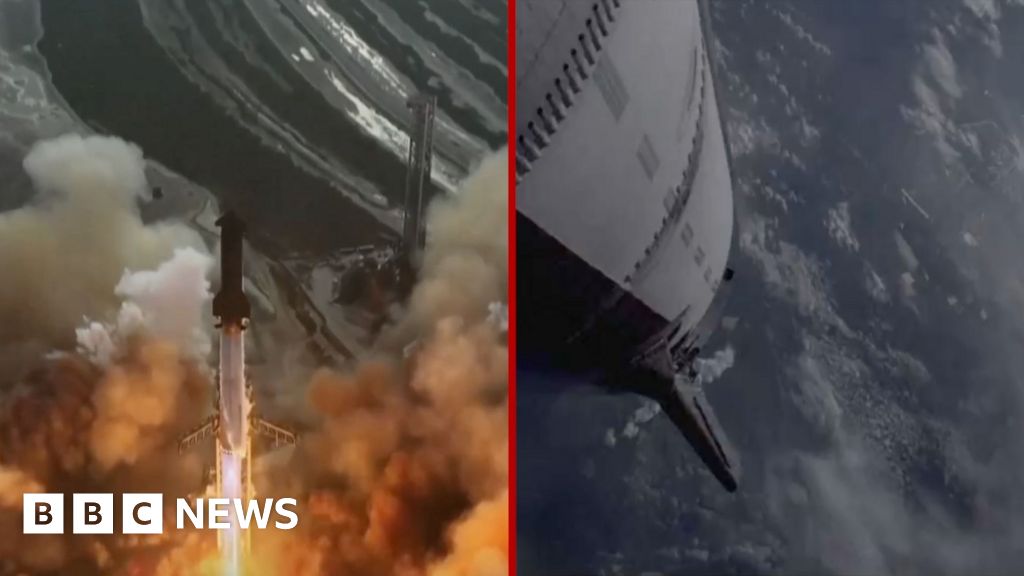SpaceX's aspirations to pioneer interplanetary travel have encountered a significant hurdle as the U.S. authorities have grounded the Starship rocket following a catastrophic explosion during its recent test flight. The incident occurred after the rocket's upper stage disintegrated over the Caribbean, leading to critical modifications in flight paths for nearby commercial aviation, which aimed to avoid descending debris.
The U.S. Federal Aviation Administration (FAA) has initiated a thorough investigation into the failure and has coordinated with SpaceX as well as other relevant bodies to evaluate potential damage reported on the Turks and Caicos Islands. Fortunately, there were no casualties connected to the incident. The FAA has mandated that SpaceX undertake a "mishap" inquiry to pinpoint the cause of the explosion, which will help authorities determine if and when Starship can resume its operations.
To temporarily manage the situation, the FAA set up a "debris response area" specifically aimed at controlling air traffic in the vicinity of the incident, thereby preventing aircraft from entering or exiting locations affected by the falling debris. Reports indicated some aircraft experienced fuel shortages as they diverted from the area.
The recent launch marked Starship's seventh test, with this iteration being a taller, upgraded variant designed for efficiency and power. Elon Musk’s vision for Starship is ambitious—intended as a cornerstone for future Mars colonization efforts, this rocket stands at 123 meters (403 feet) and is envisioned as a fully reusable platform.
The Starship system lifted off from Boca Chica, Texas, at 5:38 p.m. EST, but communication signals were lost shortly after the vehicle's upper stage detached from its Super Heavy booster in a successful initial phase of the flight. Although the booster made a successful return to the launch platform, SpaceX later confirmed the unfortunate disintegration of the upper stage, described as a "rapid unscheduled disassembly."
Musk provided early insights on social media, indicating that an oxygen and fuel leak above the ship's engine firewall might be to blame. However, he expressed optimism regarding maintaining a future launch schedule, with considerations for a potential return to the launch pad within the coming month.
This development coincides with several technological advancements in the space exploration sector, including the inaugural flight of Blue Origin's New Glenn rocket. Both Musk and Jeff Bezos aim for market dominance in the burgeoning space vehicle industry, with their visions positioning them as leading figures in extraterrestrial exploration. As the investigation unfolds, the future of SpaceX's Starship development remains uncertain yet tenaciously hopeful.





















